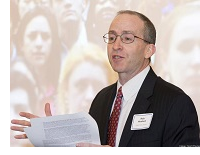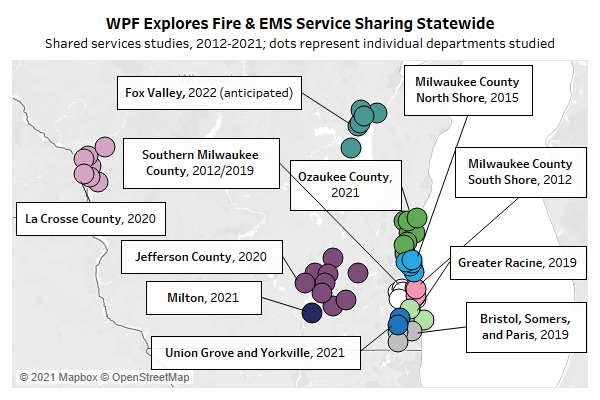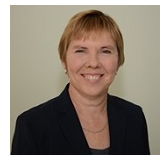




Both the Wisconsin Policy Forum and our two predecessor organizations have consistently stressed the need for governments and school districts to set goals and objectives, measure performance, and use those data to guide budget decision-making. Continue reading…

While the Forum typically is measured in its calls for legislative or executive action, we made an exception last fall with regard to the challenges facing emergency medical services providers in Wisconsin.
Our October report, In Need of Resuscitation?, detailed the difficulties many small EMS agencies were experiencing in maintaining sufficient rosters of part-time responders and effectively fielding responses to 911 calls. We suggested that state policymakers, in particular, needed to respond to this challenge, warning that “the ability of many communities to provide an appropriate level of fire and emergency medical services is in jeopardy and may soon necessitate an emergency response of its own.”
Such a response arrived from Gov. Tony Evers in February, when he announced a $30 million investment in EMS systems across the state. The package includes an increase in the Medicaid reimbursement rate for ambulance transports, which was an option detailed in our October report.
Because the investment is financed with one-time federal pandemic relief funds, the extent to which it will meet local EMS challenges over the long term is uncertain. However, this issue clearly has now grabbed the attention of state leaders, and we are proud that our research contributed to that.
While our March 14 Milwaukee mayoral candidate debate featured a cordial attitude on the part of both candidates, former Alderman Bob Donovan and Acting Mayor Cavalier Johnson, it also highlighted some of the contrasts in their visions for Milwaukee’s future.

A few examples included the candidates’ approaches to working with state officials to resolve the city’s fiscal challenges, their views on policing and public safety, and the future of Milwaukee’s streetcar, The Hop. Notably, all of these issues are the subjects of recent Forum research.
Nearly 250 people attended the lunch-hour debate in person, while more tuned in to a video live stream courtesy of our partners at Wisconsin Eye. The event was held in partnership with the Greater Milwaukee Committee and the Metropolitan Milwaukee Association of Commerce.
As many have noted, Milwaukee’s recent history has not featured frequent changes of the guard in the mayor’s office. As the city’s voters prepare to elect a new mayor for the first time in nearly two decades, we hope this event made a modest contribution to their understanding of the choice at hand.
.png)
For the second time in less than a year, the state has increased its projections for tax collections in the current two-year budget by billions of dollars. This influx of new revenue may leave state finances in their strongest position in decades. Combined with limited growth in costs, the additional revenue is expected to leave state government with more than $5.6 billion in combined general and rainy day fund reserves at the close of the current budget on June 30, 2023.
The Forum is helping to elevate the discussion over how the state should use this unprecedented influx of resources. A brief released last month explained the surplus and posed a provocative question – what if the state used at least some of this additional revenue to support crucial local services like public safety? “The state’s improved fiscal position may create the best opportunity in years to help local governments with their growing challenges – including those posed by a tight labor market and high inflation – and ease longstanding conflicts in the state-local funding relationship,” the brief reads.
The Forum is also considering the implications of the surplus for other priorities, from spending on services such as education to strengthening state finances and pursuing tax reform. Given the calls by some lawmakers for using the surplus to help cut or even eliminate the state income tax, a recent Forum report examines the sizable income tax cuts that have already been made over the past decade and which groups have seen the greatest benefits from them.
Boardman Clark is one of Madison’s most distinguished and longest-standing law firms, tracing its roots back to 1881. While its Madison roots run deep, they have a long history of serving clients throughout the Midwest. Today, 58 attorneys provide a range of services to private-sector clients and individuals, with a significant focus on serving local governments, including school districts. Attorney Lawrie Kobza works with municipalities, special purpose districts, and utilities as they strive to provide services efficiently.
“How has your membership in the Wisconsin Policy Forum been a resource for you and your organization?”

I appreciate the Wisconsin Policy Forum’s impartial public policy research and analysis, especially on statewide municipal issues. Three reports I find particularly informative are “Dollar for Dollar: Where does Wisconsin rank in local government spending,” January 2021; “Dollars and Sense, Is it time for a new municipal financing framework in Wisconsin,” February 2019; and “An Abundance of Government,” August 2019.
Local governments face many challenges in obtaining sufficient funds to provide essential services. These challenges often are not recognized as local governments continue to be asked to do more with less. The Wisconsin Policy Forum is committed to providing us this information in an unbiased, nonpartisan manner. Their analysis and reports impartially explain the origin and current status of local government challenges, how they compare to other states, and what future options may be available. This helps state and local policymakers, advisors like Boardman Clark, and the general public understand the impacts that actions and decisions can have.
Contact Info: lkobza@boardmanclark.com, phone 608-283-1788. Website: Boardmanclark.com
Student Financial Aid: This project looks at how growth in financial aid has stalled at the state level and slowed and even fallen in some ways at the federal level. These trends have left aid levels in Wisconsin below those of most other states, led to rising levels of unmet student need, and potentially contributed to the state’s challenges in meeting its need for skilled workers. The report will look at trends across both public and private institutions in Wisconsin and highlight potential solutions.
Milwaukee Postsecondary Readiness: This report looks at efforts to address Milwaukee’s “completion crisis,” in which too few K-12 students go on to earn both the high school and college degrees that are increasingly needed in today’s labor market. Specifically, the report looks at programs for Milwaukee teenagers outside of school that are aimed at increasing access to, and success in, higher education. The study will examine whether these programs are meeting local needs and seek to identify any large gaps in service or overlapping services.
Charles Allis and Villa Terrace Museums: This pair of county-owned but privately operated museums on Milwaukee’s east side face challenges that have been exacerbated by the pandemic. This report sizes up their finances by looking at their attendance, revenue, and programming trends and reviews some peer institutions nationally to identify practices that may lead to a more sustainable business model.
Federal Pandemic Aid: Building on our prior work outlining the billions of dollars in federal pandemic aid to Wisconsin, this research will provide national context as well as update prior estimates. Researchers will draw on data for all 50 states to show how the unprecedented assistance to Wisconsin compares to others nationally and how it has been used here compared to elsewhere.
Forum Friday: Responding to Emerging Behavioral Health Challenges
Zoom Webinar
Friday, April 29, 2022 | 12:30 – 1:30 p.m.
Join us Friday, April 29, for our virtual event series, Forum Friday. This installment centers on the challenges posed by the escalating prevalence of mental illness and substance use disorders in the wake of the pandemic and how state and local agencies will respond. We are proud to partner with Milwaukee’s Grand Avenue Club to present this program.
Registration is free, but required for this event.
|
|
For more than a century, the Forum and its predecessor organizations have produced impartial research and analysis that has generated greater understanding of complex policy issues and improved the quality of public policy decision-making in Wisconsin. In addition to maintaining your ongoing membership, we ask you to consider making a donation to further facilitate our ambitious research and program agenda. Please contact Katie Hofman, our Fund Development and Membership Director, at khofman@wispolicyforum.org or by phone at (414) 435-1130 to discuss how your charitable gift can advance our shared goal of producing objective, independent research to address state and local issues throughout Wisconsin.
In these turbulent times, we are especially grateful for the support of our members and sponsors. Thank you for reading our research, attending or tuning in for our events, participating in our committee meetings, and maintaining your membership with us.
We are supported by hundreds of corporations, nonprofits, local governments, school districts, and individuals from across the state of Wisconsin. The following members provide particularly generous support that ensures Wisconsin will continue to benefit from having one of the nation’s most successful nonpartisan, independent public policy research organizations.

.jpg)